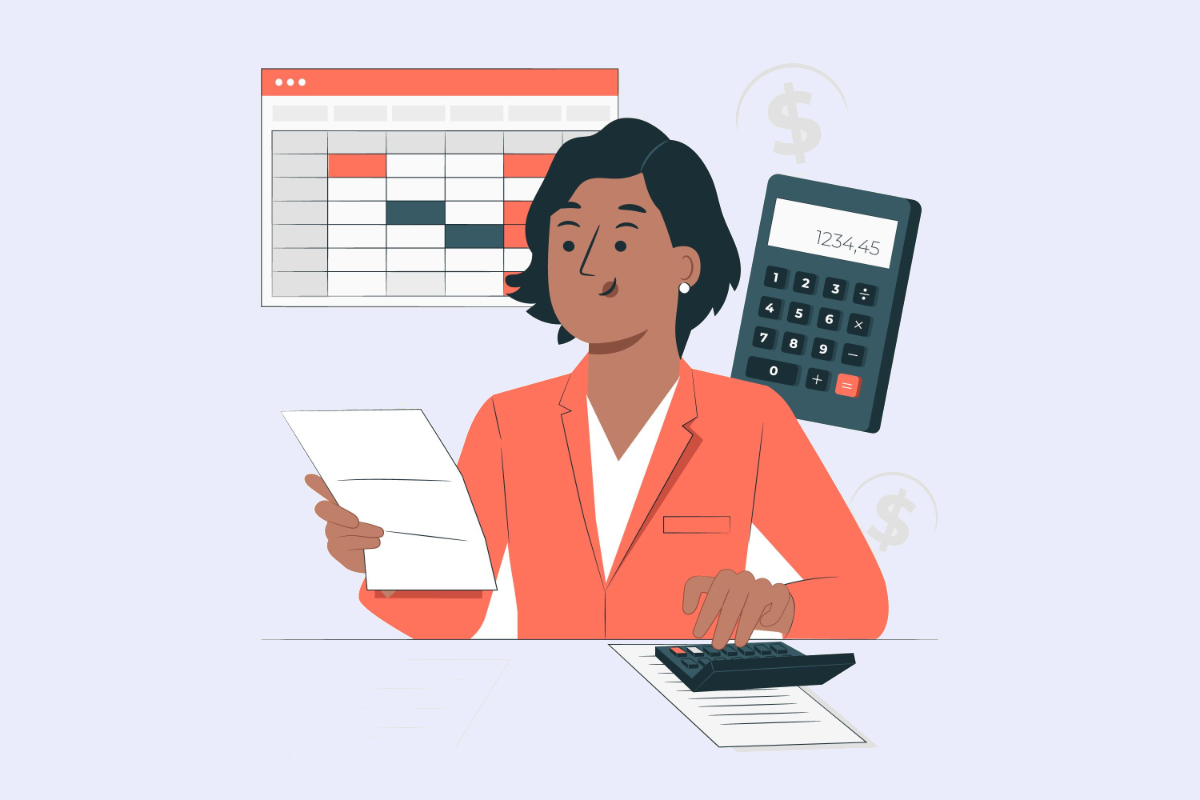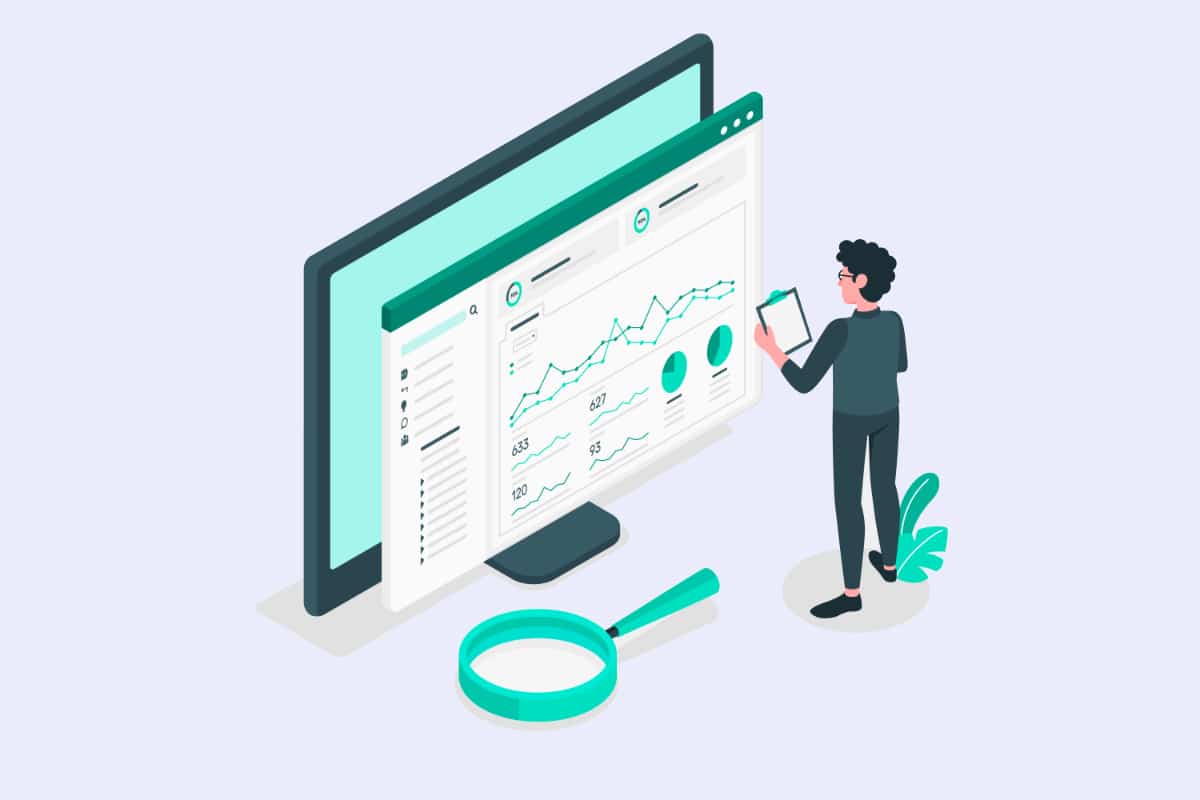Can you become an independent accountant? If you are among those who ask this question, then you are on the right page. You should already know that it is possible to be self-employed in this profession. Better still, it will allow you to benefit from a number of important advantages. Being an independent accountant gives you the possibility to offer your services to companies as well as to individuals.
The ideal profile to become an accountant

Above all, the accountant must like numbers and be comfortable with computer tools. Nevertheless, many other qualities are essential to succeed in this profession. Rigor and method are the first virtues that an accountant must have. Indeed, he must be able to respond to the multiple administrative constraints as well as the numerous deadlines to be respected.
From the end of January to the beginning of April, most companies produce their balance sheets. This short period of time reveals the accountant's ability to handle the increased workload. Coping with the work and resisting stress are therefore essential elements for the accountant.
The latter, although very often autonomous, is in contact with numerous interlocutors. These include the president and CEO, the company's various employees and clients. They must therefore be able to share their analyses, transmit their recommendations and explain the accounting exercise in a simple manner. In view of all this, the more pedagogical and communicative he is, the better he will be considered as competent.
What training do I need to become an accountant?
There are many courses that can lead a student to become an accountant. Specialized training begins with the CAP and continues through the baccalaureate plus eight years of study. To become an accountant, you must at least have a baccalaureate plus two years of study.
This course of study is accessible after a technical or general baccalaureate and will have to be completed either in a private school or at the university. The fact that you have a degree in management and accounting offers you a first level of diploma. This is the accounting and management degree. Then, you have the possibility of continuing your studies until you obtain a master's degree.
The master's degree in accounting, control and auditing allows you to obtain a higher diploma in accounting and management. To become a self-employed accountant, you must have a diploma in accounting expertise. This is a mandatory condition to open your own accounting firm. This level corresponds to the baccalaureate plus eight years of study.
Description of the accounting profession
The accountant plays an essential role in any type of business or professional activity. He is responsible for keeping the accounts, collecting and verifying the accounting data of the structure. He/she is also responsible for drawing up the closing operations as well as the regulatory documents. The content and organization of the accountant's work varies from one company to another, but also according to the tasks to be assigned.
The accountant can be very versatile within a small or very small company. In this case, he is in most cases attached to the head of the company. He keeps an eye on everything. His tasks range from recording accounting transactions to preparing the annual balance sheet. He/she is also responsible for drawing up the payroll and the tax and social security returns. He is also responsible for the company's income statement.

You will also see accountants in the army, especially the army. With a status of non-commissioned officer, they are in charge of managing budgets, financing and public contracts. This is done at the regimental, staff or administrative level. In their military attributes, accountants can be used during external operations. In this context, they will be able to monitor the budget on site. In other words, the collection of advance pay for personnel or specific orders.
In a public accounting firm, the accountant works closely with the client companies. The latter have entrusted all or part of their accounting to the firm. Under the supervision of the chartered accountant, the accountant ensures the social, accounting and tax follow-up. When firms are larger, accountants may have a specific role to play.
In the case of large companies, most of the time they have their own accounting department. The work is more hierarchical and serialized in this case. Under the direction of a chief accountant, an accounting manager or a department head, the accountant generally handles one type of accounting. For example, he or she may be responsible for payroll, collection, customer or supplier.
As for the client accountant, he/she is in charge of controlling the accounting for collection and sales operations. As for the supplier accountant, he/she is specialized in the accounting treatment of purchase operations. In addition, he/she ensures the collection of supplier invoices with the various departments. The collection accountant is responsible for recovering the payment of unpaid invoices.
Specialized or versatile, the accounting profession requires great rigor and method. These qualities are absolutely essential for the exercise of this profession. It is true that computer work is involved to a large extent. Nevertheless, the job also requires frequent contacts. This is the case with the client in an accounting firm or with the commercial or purchasing departments in a company.
What about being an independent accountant?
To know the missions of the independent accountant, it is necessary to know what this freelance activity consists of. The independent accountant is a specialist in figures. As such, he freely offers his services to individuals and companies. He enjoys various advantages and does not take orders from a boss.
The missions of an independent accountant
You will have to perform multiple tasks before becoming an independent accountant. These include recording all accounting transactions and maintaining the books of account. You will also have to prepare and process invoices, draw up employment contracts and pay slips.
All the company's dashboards must also be managed by the independent accountant. These include turnover and results. He must also follow up on unpaid invoices, know how to draw up balance sheets and official documents. The independent accountant must also be able to play a role of advice and support.
The different obligations of an independent accountant
In order to work as a qualified independent accountant, you must meet a number of requirements. In order to practice legally, you must be a French citizen or a national of a European Union member state.
You must also hold a diploma of Chartered Accountant and be registered with the Order of Chartered Accountants. You must also have a clean criminal record and civil liability insurance. Finally, you are also obliged to respect professional secrecy.
How to distinguish between self-employed status and employee status
Knowing the differences between self-employed status and employee status allows you to become an independent accountant. Indeed, the self-employed person is his own boss. As such, he does not have to answer to the directives of a superior. The self-employed person is responsible for creating and developing his or her own business.
This allows him to enjoy a great deal of freedom. Starting out as a freelancer can be scary at first. Being self-employed requires you to play several roles at the same time. A freelancer is not bound by an employment contract or a relationship of subordination. To grow your business, however, you will need to build a rich client base.
The legal status of the independent accountant
The legal status of your business is the first requirement for becoming an independent accountant. Several legal statuses are available. This, depending on your needs, for example in the case of the creation of an accounting firm.
It is a fundamental choice, because it is very cumbersome and complicated to change your legal status during your activity as a self-employed accountant. In addition, your legal status will have an influence on the tax and social security system of your company.

The independent accountant within the framework of a sole proprietorship with limited liability
You can become an independent accountant by opting for the status of Sole Proprietorship with Limited Liability. This implies that you are only liable within your company up to the limit of your capital contributions. If you are faced with a bankruptcy filing, your personal capital is protected. It can therefore not be used to pay a creditor.
The independent accountant within the framework of the universal limited liability company
You also have the option of choosing the Universal Limited Liability Company to become an independent accountant. This company is somewhat similar to the Sole Proprietorship with Limited Liability. The only difference is that the owner is treated as an independent worker. By adopting such a legal status, you should keep in mind that you will benefit from a special social protection regime. A regime that is much less attractive than that of employees.
The independent accountant within the framework of a one-man simplified joint stock company
Another interesting legal status to become an independent accountant is the Single Person Simplified Joint Stock Company. It grants you a very flexible operation. This can be a great asset in order to become an independent accountant.
In this company, you will be the sole partner of your company. Better still, you can entrust your position as president to a third person. This will allow you to be attached to the general social security system.
The independent accountant in the framework of the microenterprise
In most cases, the microenterprise is the most interesting choice to become an independent accountant. It is a legal status with many advantages from a fiscal and social point of view. In this regime, it is the gross turnover that you have realized that is used to calculate your social contributions. If you have no turnover, you will not have to pay any social contributions.
The ceiling of the turnover is nevertheless fixed at one hundred and seventy-six thousand two hundred euros for the activities of purchase-resale. The amount falls to seventy-two thousand five hundred euros in the case of services. Very easy to create, the microenterprise even allows you to benefit from state aid to launch your independent activity.
The independent accountant in the framework of a limited liability company
By opting for a limited liability companyYou can also set up as an independent accountant. However, you will need to have at least two partners to do this.
Therefore, you will need to have a capital of at least one euro in order to create a limited liability company. In this company, the responsibility of each partner is limited to the amount of his capital contribution. Another advantage is that you can choose your tax system and the administrative procedures are simplified.
The independent accountant in the context of a simplified joint stock company
The Société par actions simplifiées is an attractive choice to become an independent accountant and to integrate one or more partners. You will have to be at least two partners in this company with a capital of one euro. A natural person or a legal entity can present it within a Société par actions simplifiées.
The independent accountant and the freelance administration
If you want to become a freelance accountant without any stress, you can use freelance administration. All you have to do is register with a freelance administration agency. Professionals will automatically take care of the different steps. This will allow you to carry out your independent activity while keeping the advantages of the employee status. It is a huge time saving to become a truly qualified independent accountant.
How can I become a qualified independent accountant?
Being a self-employed accountant also involves mastering the mechanics of starting a successful independent business. To do this, it is important to manage your business well. It also involves your ability to provide first-rate services to clients. This means that you need to be proficient in dealing with numbers. To be a competent independent accountant, it is not enough to perform accounting and tax operations.
Importance of being serious and motivated
Being an independent accountant is within everyone's reach. However, to do so, you must be serious and motivated. It is essential to be very organized in order to succeed in creating and managing your business. Be careful not to be overwhelmed by the many steps to take.
Your personal investment must be at its highest to succeed in your first steps as an independent accountant. So you should never give up on the very first difficulty you encounter. On the contrary, use this difficulty as fuel to improve yourself and never repeat it.
Successfully marketing yourself online
Having good online visibility is another advantage to becoming a freelance accountant. Good online visibility is a must for any freelance business. It allows you to get clients. It is therefore mandatory to have a website. Internet users will be able to find the essential information concerning your skills and your expertise.
Your presence should also be significant on professional social networks. Dialoguing and exchanging with Internet users is also highly recommended in order to become a qualified independent accountant.
Have a wide range of clients
There is one big challenge you face in being an independent accountant. It is to building a strong and reliable client base. Your communication and marketing strategy needs to be very effective. Have personalized business cards made and then distribute them to as many people as possible.
Banks and lawyers located near you must know you. Your skills and the added value you offer will be the decisive assets that will propel you to the rank of an efficient and reputable independent accountant.
Succeed in arousing sympathy and trust in your interlocutors

Selling your skills is an important part of the strategy for becoming an independent accountant. You will succeed in making a difference by getting people to trust you. Show your targets that you are different from your competitors by putting yourself forward. This is done by offering solutions that can help them easily manage their accounting and essentially that of their businesses.
Do everything you can to show them that you are the only independent accountant they need for the next few years. If they feel they were right to choose you, then you will have won the battle. You should never be ashamed to sell yourself as well as you can.
How to become a self-employed accountant: in brief
All in all, as you will have understood, one does not improvise oneself as an independent accountant. As a highly regulated profession, you will have to show seriousness and discipline in order to succeed and create your own business. Between the training, the requirements, the authorized legal statutes, the insurances and remunerations, you now know everything you need to know before launching yourself in this profession. The advantages are numerous, because you will be able to work for companies as well as for individuals.




